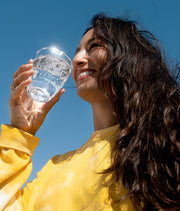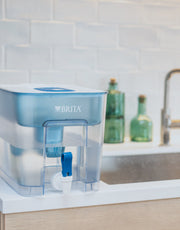
Why BRITA?
Australian tap water is clearly world class. Yet travelling great distances from source to tap may pick up unwanted passengers.
What's in your tap water?
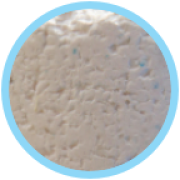
Chlorine
Chlorine
Chlorine is a chemical added to water to reduce bacteria and virus growth. It isn’t harmful, but it can add a nasty smell and taste to tap water.
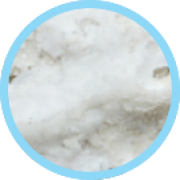
Limescale
Limescale
Limescale is the calcium build up that happens when tap water dries up within household appliances like coffee machines.
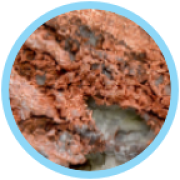
Heavy Metals
Heavy Metals
Heavy Metals like lead get picked up from old pipes or other sources when water makes its way to your tap.

Other Sediments
Other Sediments
Sediments caused by rust and
dirt buildup in unused or damaged pipes and plumbing, often stirred up by repairs or replacements.
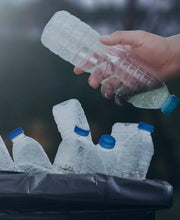
Let's aim for zero plastic.
The UNEP reports 13 million tonnes of plastic waste annually across the globe, mainly from single-use plastic bottles. By 2050, there'll be more plastic than fish in the oceans.
Choose BRITA to make a positive impact.
Turn on the taste with the new BRITA MAXTRA PRO Pure Performance filter. Enjoy the sustainable choice for fresh, filtered water with a new capacity of 150L of use. Simply turn on the tap to make and taste the difference.
Make a difference – say farewell to bottled water! Our BRITA water filter solutions give you delicious, fresh filtered water straight from the tap. That saves a lot of plastic, is gentle on your budget and you no longer have to carry water home with you.
 Shop All Products
Shop All Products Water Filter Jugs & Cask
Water Filter Jugs & Cask Water Filters
Water Filters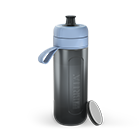 Water Filter Bottles
Water Filter Bottles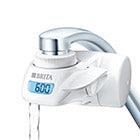 Water Filter Taps
Water Filter Taps





